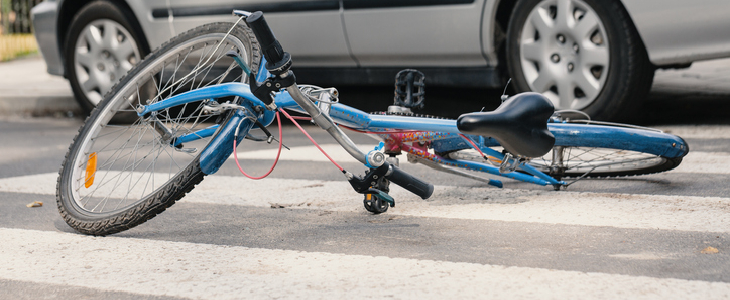In Georgia, like in many places, bicyclists and motorists are expected to share the road responsibly and adhere to traffic laws designed to ensure safety for everyone. Road interaction between bicyclists and automobiles necessitates that both parties abide by specific rules. If they do not fulfill their responsibilities and an injury or even fatality occurs, it is then necessary to determine which party was at fault in the particular accident.
Responsibilities of Both Cyclists and Drivers of Vehicles in Georgia
Georgia law requires motorists to maintain a safe distance when passing bicyclists. There is also a specific law known as the “Three Feet Law” in Georgia, which mandates that motorists must provide at least three feet of clearance when overtaking or passing a cyclist. However, an amendment to the Official Code of Georgia Annotated (OCGA) §40-6-56 requires drivers to slow down and give bicyclists more room than three feet. Drivers are now required to change lanes if traffic conditions permit. If a bicycle accident ensues due to a negligent driver, the cyclist has the right to seek compensation.
Bicyclists are subject to the same traffic rules as motorists. They must obey traffic signals and signs, ride in the same direction as traffic, and use proper signals for turns and stops. When available, cyclists are encouraged to use bike lanes or paths. However, they are not restricted to these lanes and can use the entire traffic lane for safety. In addition, bicyclists over 12 are generally not permitted to ride on sidewalks unless a local ordinance allows it. Bicyclists should not ride more than two abreast except on paths or parts of roadways set aside exclusively for bicycles. Lastly, bicycle helmets are mandatory in Georgia for riders under 16. While it is not legally required for those over 16, wearing a helmet is highly recommended for safety. ( GA Code § 40-6-291-296 (2022))
Determination Of Who Is At Fault In Accidents Involving a Bicycle And A Car
Accidents involving bicycles and vehicles can lead to various legal actions. If a motorist is found to be at fault for not following safe passing laws or for reckless driving, they could face traffic fines or even criminal charges for severe injury or fatality. Similarly, a cyclist who violates traffic laws can also be fined. There are specific civil actions that might be pursued as well, depending on the case’s specific circumstances.
- Negligence: In accidents involving bicyclists and vehicles, the concept of negligence is central in determining fault. If a driver or a bicyclist fails to exercise reasonable care, they could be found negligent. For example, if a motorist is speeding or driving while distracted, the motorist could be considered at fault. Similarly, if the bicyclist’s negligence contributed to the accident, such as riding on the wrong side of the road, this can impact the outcome of the legal proceeding.
- Comparative Fault: Georgia follows a modified comparative negligence rule. This means that if a victim is less than 50% at fault, they can recover damages, but their percentage of fault reduces their recovery. However, if the victim is found to be 50% or more at fault, the injured party will not successfully recover damages in a lawsuit.
- Evidence: Evidence plays a crucial role in determining fault. The evidence can include police reports, witness statements, traffic camera footage, and physical evidence from the accident scene.
- Product Liability Claims: If there was a defect in the bicycle or the car, you could attempt to prove fault by bringing a product liability claim against the manufacturer of the defective vehicle or part.
- Wrongful Death Claims: In tragic circumstances where an accident results in the death of a bicyclist, the family of the deceased may file a wrongful death claim against the individual they believe was at fault.
- Settlement Negotiations: These cases are often settled out of court through negotiation between the parties and their insurance companies or attorneys.
- Criminal Charges: If the conduct of the driver or the bicyclist was not just negligent but reckless or intentional (e.g., hit and run, driving under the influence), criminal charges might also be involved.
- Local Ordinances: As mentioned above, Georgia’s local ordinances may also impact the determination of fault.
- Insurance Company Investigations: Insurance companies conduct their investigations to determine fault. They will look at the evidence, apply the law, and use their internal guidelines to decide a case. Both parties can file claims with their respective insurance companies. In many jurisdictions, automobile insurance policies cover accidents involving bicycles. In addition, bicyclists hit by a car may be able to claim against the motorist’s insurance. The policies can cover medical expenses, lost wages, and other damages.
In any incident involving a bicycle and a motor vehicle, the specifics of the situation, the behavior of the parties involved, and the applicable laws and regulations will all play a role in determining fault. It is useful to consult with an experienced lawyer who is experienced in personal injury or traffic law to understand the best course of action in a specific case. Gautreaux Law has skilled personal injury attorneys in Macon, Warner Robins, and throughout Georgia who will advocate vigorously on your behalf. Contact us for an initial complimentary consultation.



